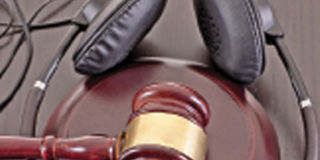Protect intellectual property

The management of copyright in Kenya requires a lot of work and investment. The average Kenyan musician is poor and cannot live off his talent.
On May 27, the Kenya Copyright Board (Kecobo) tweeted that it would resume charging for copyright registration on July 1. This is a timely reminder to take advantage of the free copyright registration window that ends on June 30.
The charges are based on the legal person applying: Natural persons and corporate entities. A natural person is an individual. Corporate entity refers to limited liability companies, associations and registered business names. The charge is Sh100 per work for the former and Sh500 for the latter.
Kecobo will also resume charging for other related services and change of ownership of copyright and request for a copy of a lost or destroyed certificate.
The process is quite simple. Sign in or sign up on the National Rights Registry Portal (NRR) and create an account. You can register categories of works like audiovisual, artistic, literary and sound recordings. Enter the primary copyright owner details—such as your name and basic contacts. Then fill in the copyright work details, like category and sub-category of copyright and the title of the work. For example, if you choose literary works, you will get sub-options like literature, software, sites and sheet music. You need to upload the work you want to register.
Copyright certificate
Give the copyright ownership details—the author—and state the publisher, if any. The portal then allows you to upload any other supporting documents. Lastly, you can review your application and submit it. You will receive a notification via email and text that your application is being reviewed. If approved, you will be notified to download your copyright certificate from your NRR account.
Benefits to register copyright include proof that you own it. Copyright already exists as long as the idea is expressed in a material form but registration gives it an extra layer of protection. It creates ease of commercialising your intellectual property and gives you a basis for legal remedies when others use your copyright without your express permission.
Ms Otieno, a legal and communication consultant, is a legal blogger. [email protected].





